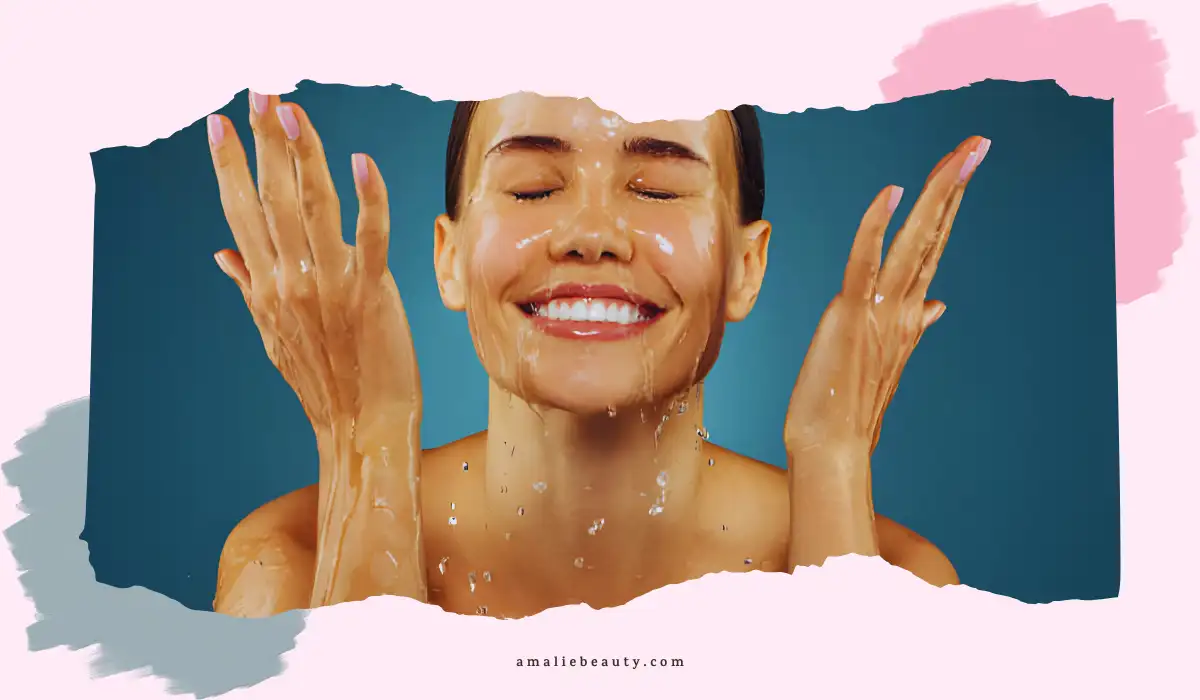Have you noticed a sudden shift in your skin color after switching on your water? You’re not alone! Many people deal with skin darkening due to water.
Skin darkening after a water change is more common than people realize. Whether it happens instantly or over several days, it’s increasingly becoming a topic of discussion in skincare circles.
This article looks at the different components that link a change of water to darkened skin. We will uncover the factors to give you the insight to understand and manage this strange skin reaction.
What is Dark Skin?

Dark skin refers to a skin tone rich in melanin, the pigment that gives color to the skin. Everyone has melanin in their skin, but the amount and type of melanin you have determines your skin color.
People with dark skin have more melanin in their skin compared to those with lighter skin tones. This higher melanin content not only defines the darker color of the skin but also provides some protection against the effects of the sun’s ultraviolet rays.
Types of Water
Water comes in various forms, each with unique characteristics and applications.
- Tap Water: Delivered to homes via municipal systems, this water is treated to remove contaminants and is generally safe in most first-world regions.
- Spring Water: Pulled from natural springs, this water is valued for its purity and mineral content. You can often find it bottled for commercial sale.
- Mineral Water: Again, similar to spring water, this water contains minerals like calcium, magnesium, and sodium and can come from a mineral spring. It may be still or carbonated.
- Distilled Water: Created by boiling water and collecting steam, this process removes impurities and minerals. It is typically used in scientific settings and for medical purposes.
- Purified Water: This water has been through filtration and other processes to remove impurities and contaminants. There are many ways to achieve purified water, from reverse osmosis to deionization and even carbon filtration.
- Sparkling Water: Water with carbonation, which implies the existence of dissolved carbon dioxide gas, either naturally or added specifically.
- Alkaline Water: Water with a higher pH level than tap water, which some say helps neutralize body acid.
- Hard Water: It is defined by its high mineral content, mainly calcium and magnesium. Its effects are apparent in homes, making everything from soap to water-using appliances less efficient.
- Soft Water: It is low in mineral content, such as calcium and magnesium, making it superior for activities such as laundry because it does not leave mineral deposits.
- Wel-Water: Water extracted from underground sources through a well. Varies in quality, requiring purification to be deemed safe to drink.
- Rainwater: Naturally occurring water captured. As it falls, however, it can absorb pollutants from the air, requiring purification before human use.
- Greywater: This is domestic wastewater originating from bathing, dishwashing, and laundry, and it can be reused or recycled for other non-potable purposes such as irrigation.
Does Water Make Your Skin Darker?
Water itself does not make the skin darken; hard water, however, does contain minerals that can pose issues such as making the skin dry and irritated, which could lead to more melanin and dark skin.
Effects of Hard Water
Hard water contains calcium and magnesium. These minerals can clog pores and disrupt skin balance. The resulting irritation can increase melanin production, leading to darker skin.
Chlorine’s Impact
Chlorine, often used in water treatment, can damage the skin’s natural barrier. This can lead to inflammation and skin darkening, especially in chlorinated pools under the sun.
Environmental Factors
In many places, the mix of hard water, pollution, and dry weather can worsen skin allergies and conditions like dermatitis and eczema. The hard water there doesn’t darken the skin but can cause dryness, leading to rough, itchy skin and possibly wrinkles and sagging.
Does Drinking Water Make Your Skin Dark?
Drinking water does not lead to the darkening of the skin. On the contrary, drinking an adequate amount of water makes skin healthy.
Proper hydration keeps the skin elastic, soft, and supple. Dehydration causes dry, flaky, and dull skin. Dehydration may make dark circles under the eyes worse.
It does this by thinning the skin. But water can help with circulation and may reduce these dark circles. Proper hydration is also vital in a full skincare regimen. But, drinking water will not greatly change skin color.
How Can You Protect Your Skin from Darkening Due To Water Quality?
To protect your skin from darkening due to water, especially when it comes to hard water or chlorinated water like in swimming pools, here are some effective strategies:
✅ Use a Water Softener
Installing a water softener can help in areas with hard water. It reduces the mineral content in the water, minimizing its potential to cause skin issues.
✅ Moisturize Regularly
Applying a rich moisturizing lotion, especially when the skin is still damp, can help trap natural moisture and prevent the skin from getting dry due to water quality.
✅ Rinse Off After Swimming
It’s crucial to rinse off with fresh water immediately after swimming in a chlorinated pool to remove chlorine residues that can dry out and darken the skin.
✅ Protective Sunscreen
Apply a broad-spectrum, waterproof sunscreen when exposed to the sun, especially during swimming. This helps protect the skin from UV rays and the effects of chlorine.
✅ Cover Up and Use Protective Gear
When swimming, consider wearing a hat, rash guard, or long-sleeved shirt to protect your skin from the sun’s rays. Also, use goggles to protect your eyes and a swimming cap for your hair if you are in a chlorinated pool.
✅ Gentle Skincare Products
Use soap-free cleansers and gentle skincare products, particularly if you have sensitive or dry skin. This minimizes irritation that can be exacerbated by hard or chlorinated water.
✅ Hydrate and Nourish Your Skin
Keep your body and skin hydrated by drinking plenty of water. Additionally, vitamin C can help protect against UV damage and assist in maintaining skin health.
✅ Limit Swimming Time and Choose Right Timing
If swimming outdoors, try to avoid peak sunshine hours. Also, limiting the time spent in the water can reduce exposure to chlorinated water and sunlight.
✅ Shower Before Swimming
A quick shower before entering the pool can prevent your skin from absorbing chlorinated water quickly, reducing potential damage.
✅ Exfoliate Regularly
Regular exfoliation can help remove pigmented dead skin cells, especially after swimming, which might contribute to skin darkening.
Conclusion
In summary, the water quality affects skin health and skin color. Hard or chlorinated water may irritate the skin. This irritation increases melanin and darkens the skin.
Yet, drinking water doesn’t cause skin darkening but sustains skin health. To prevent skin darkening, use water softeners and moisturizers.
Also, rinse off after swimming and apply sunscreen. Use gentle skin care products. Being well-hydrated helps. So does limited swimming time. Shower before the swim and regular exfoliation also help. These are ways to keep skin healthy in water.

